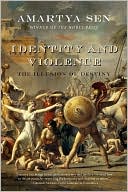Category Books
- Fiction Books & Literature
- Graphic Novels
- Horror
- Mystery & Crime
- Poetry
- Romance Books
- Science Fiction & Fantasy
- Thrillers
- Westerns
- Ages 0-2
- Ages 3-5
- Ages 6-8
- Ages 9-12
- Teens
- Children's Books
- African Americans
- Antiques & Collectibles
- Art, Architecture & Photography
- Bibles & Bible Studies
- Biography
- Business Books
- Christianity
- Computer Books & Technology Books
- Cookbooks, Food & Wine
- Crafts & Hobbies Books
- Education & Teaching
- Engineering
- Entertainment
- Foreign Languages
- Game Books
- Gay & Lesbian
- Health Books, Diet & Fitness Books
- History
- Home & Garden
- Humor Books
- Judaism & Judaica
- Law
- Medical Books
- New Age & Spirituality
- Nonfiction
- Parenting & Family
- Pets
- Philosophy
- Political Books & Current Events Books
- Psychology & Psychotherapy
- Reference
- Religion Books
- Science & Nature
- Self Improvement
- Sex & Relationships
- Social Sciences
- Sports & Adventure
- Study Guides & Test Prep
- Travel
- True Crime
- Weddings
- Women's Studies
Identity and Violence: The Illusion of Destiny (Issues of Our Time) » (ABR)

Authors: Amartya Sen
ISBN-13: 9780393329292, ISBN-10: 0393329291
Format: Paperback
Publisher: Norton, W. W. & Company, Inc.
Date Published: February 2007
Edition: ABR
Author Biography: Amartya Sen
Amartya Sen has written many books, including Development as Freedom and The Argumentative Indian. He won the 1998 Nobel Prize in Economics. A professor at Harvard University, he lives in Cambridge, Massachusetts, and Cambridge, England.
Henry Louis Gates Jr. (Ph.D. Cambridge) is Alphonse Fletcher University Professor and Director, W. E. B. Du Bois Institute for African and African American Research, at Harvard University. He is the author of Figures in Black: Words, Signs, and the Racial Self; The Signifying Monkey: A Theory of Afro-American Criticism; Loose Canons: Notes on the Culture Wars; Colored People: A Memoir; The Future of Race (with Cornel West); Wonders of the African World; Thirteen Ways of Looking at a Black Man; and America Behind the Color Line: Dialogues with African Americans. He is general editor (with the late Nellie Y. McKay) of The Norton Anthology of African American Literature; editor-in-chief of the Oxford African American Studies Center (online); editor of The African-American Century (with Cornel West); Encarta Africana (with Kwame Anthony Appiah); and The Bondwoman’s Narrative by Hannah Craft; African American National Biography (with Evelyn Brooks Higginbotham) and The Annotated Uncle Tom’s Cabin (with Hollis Robbins). For PBS, Professor Gates has written and produced several documentaries, among them African American Lives, series 1 and 2, and America Behind the Color Line.
Book Synopsis
“One of the few world intellectuals on whom we may rely to make sense out of our existential confusion.”—Nadine Gordimer
Publishers Weekly
Nobel Prize-winning economist Sen deplores the "little boxes" that divide us in this high-minded but seldom penetrating brief against identity politics. Sen observes that ideologies of hate typically slot people into communities based on a single dimension that trumps the multifaceted affinities of class, sex, politics and personal interest that make up individual identities. This "reductionist" us-versus-them outlook is not limited to jihadists, he argues, but is a widespread intellectual tendency seen in Samuel Huntington's "clash of civilizations" paradigm, in postcolonial critiques of democracy and rationalism as "Western" ideals, as well as in efforts to "dialogue" with moderate Muslims. (These last, he feels, pigeonhole Muslims in purely religious terms.) Sen rebuts the "singular affiliation" falsehood with a cursory historical, literary and cultural survey of the diversity of supposedly monolithic civilizations (Akbar, a 16th-century Mughal emperor and champion of religious toleration, is a favorite citation.) Sen's previous work (Development as Freedom) injected liberal values into development economics; here, he argues that the freedom to choose one's identity affiliations is the antidote to divisive extremism. Stitched together from lectures, the book is dry and repetitive. While Sen's defense of humane pluralism against narrow-minded communalism is laudable, he never really elucidates the social psychology that translates group identity into violence. (Mar.) Copyright 2006 Reed Business Information.
Table of Contents
| Ch. 1 | The violence of illusion | 1 |
| Ch. 2 | Making sense of identity | 18 |
| Ch. 3 | Civilizational confinement | 40 |
| Ch. 4 | Religious affiliations and Muslim history | 59 |
| Ch. 5 | West and anti-West | 84 |
| Ch. 6 | Culture and captivity | 103 |
| Ch. 7 | Globalization and voice | 120 |
| Ch. 8 | Multiculturalism and freedom | 149 |
| Ch. 9 | Freedom to think | 170 |
Subjects
 Philosophy
Philosophy  Major Branches of Philosophical Study
Major Branches of Philosophical StudyNonfiction
 Psychology
Psychology  Psychology - Theory, History & Research
Psychology - Theory, History & ResearchPhilosophy
 Major Branches of Philosophical Study
Major Branches of Philosophical Study  Mind, Philosophy of
Mind, Philosophy ofPsychology & Psychotherapy
 Psychology - Theory, History & Research
Psychology - Theory, History & Research  Personality & Identity Psychology
Personality & Identity PsychologyPsychology & Psychotherapy
 Psychology - Theory, History & Research
Psychology - Theory, History & Research  Social Psychology
Social PsychologyMedical Books
 Psychology & Psychotherapy
Psychology & Psychotherapy  Psychology - Theory, History & Research
Psychology - Theory, History & Research
